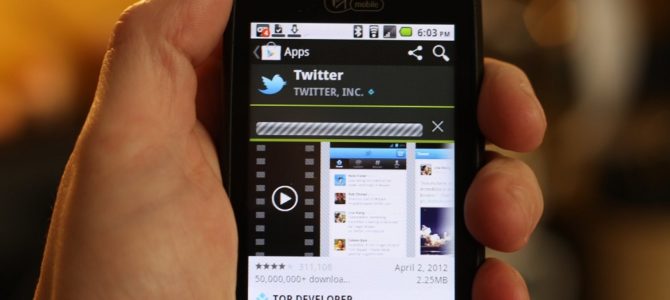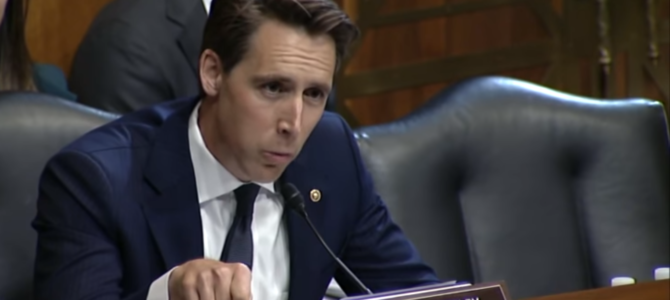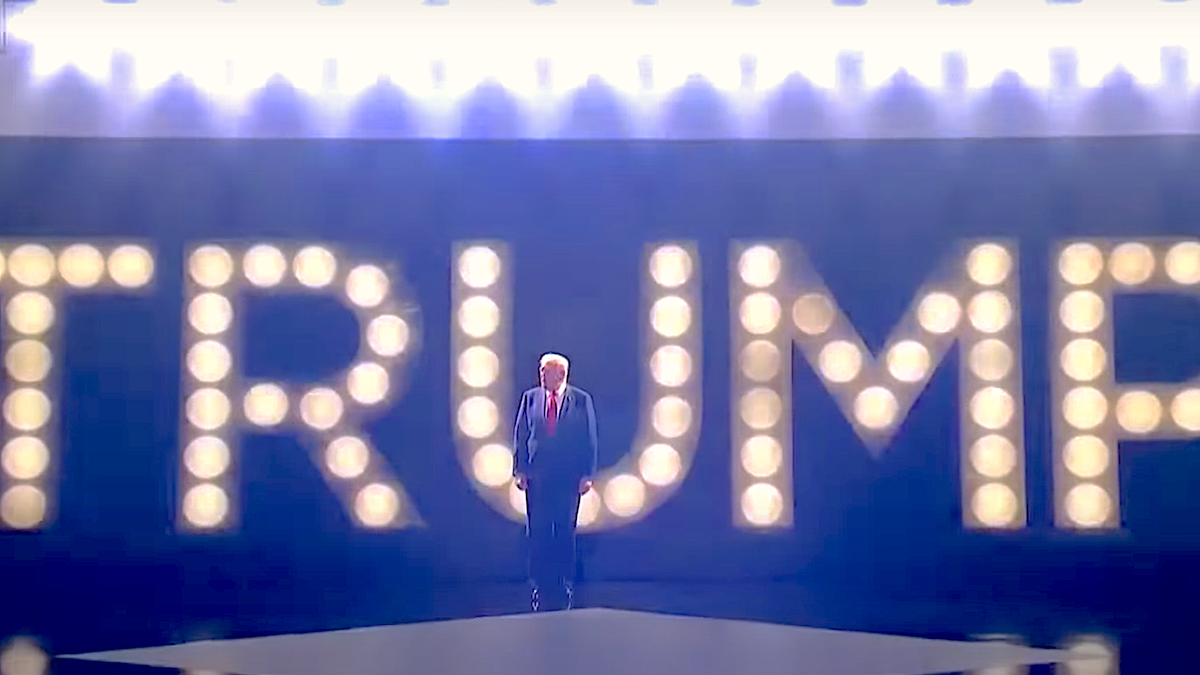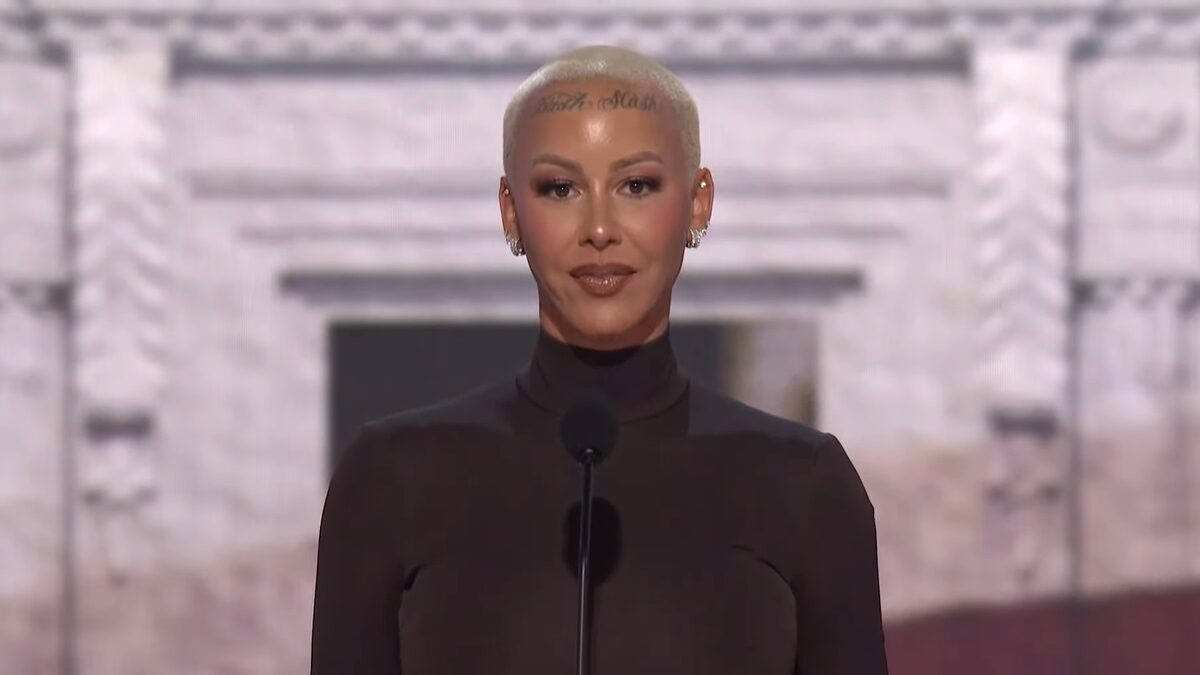
If you thought Twitter’s censorship of reported Joe Biden family corruption or frequent flagging of the U.S. president’s tweets were isolated incidents, think again. Big Tech’s efforts to shield favored political figures and positions from scrutiny have only increased.
You and I can find ourselves branded with censorious labels even for sharing court documents containing sworn testimony, should the offending share touch any of a growing number of third rails. Today, the integrity of the 2020 presidential election is the greatest third rail of them all.
I found that out this week when I tweeted screenshots of the summary of a sworn affidavit, and a link to that affidavit, delivered by Detroit poll challenger Zachary Larsen. In the affidavit, Larsen, a former Michigan assistant attorney general, claims to have witnessed several disturbing instances of fraud during the vote-counting he watched on and after Nov. 3, 2020.
Read this sworn affidavit from GOP poll challenger, and former Assistant AG for Michigan, Zachary Larsen, on the alleged fraud he observed in Detroit. This is Third World stuff, and every American should be outraged if these allegations are true https://t.co/63nLXJxAZF pic.twitter.com/9WbamMw4Yc
— Benjamin Weingarten (@bhweingarten) November 9, 2020
The affidavit is part of a lawsuit pending before the Wayne County Circuit Court. Larsen is joined by several other individuals in the lawsuit, including an employee of the City of Detroit and other poll challengers, who likewise attest under penalty of perjury to a raft of alleged fraud and corruption during the vote processing and tabulating.
These people put their names and necks on the line in coming forward in our charged political environment. A court will now determine whether their claims are sufficient to merit adjudication.
Twitter, on the other hand, is in no position to do so. Yet after my tweet started circulating widely, suddenly the purported non-publisher stepped in and made its own ruling: “This claim about election fraud is disputed.”
It slapped this flag on the tweet. Retweets meet a warning. One can now only share the tweet by adding text responding to it.
Now, it is theoretically possible that my editorializing about the alleged corruption and criminality in the affidavit constituting “Third World stuff,” and that if it’s true, “every American should be outraged,” represent “disputed” claims to Twitter. Even setting aside that, by this standard, Twitter would be a sea of flags, I would not bet that was Twitter’s problem.
One can see Twitter’s real beef by clicking on its warning. This sends one to a page that begins with the note, “Voter fraud of any kind is exceedingly rare in the US, election experts confirm.” Twitter establishes this Official Narrative by citing press reports, tweets, and selective summaries of testimony from federal officials.
This Official Narrative is itself in dispute. Just this year we saw a case in which the board of elections in New Jersey’s third-largest city of Paterson threw out nearly 20 percent of the votes in a mail-in election due to fraud.
The U.S. Department of Justice also convicted a former Philadelphia judge of elections for perpetrating voter fraud from 2014-2016. Anyone with a modicum of knowledge about the history of urban political machines knows such activity has been a sad fact of American life for decades.
Democrats lodged more than 100 lawsuits over the past year in an attempt to loosen identification requirements, increase the quantity of mail-in ballots, and widen the avenues by which they could be delivered. That is a testament to the concerns legislatures across the country have long had over voter fraud—concerns merited given the hundreds of other documented cases that have transpired.
Every American citizen should have an interest in unearthing such cases, seeing justice done, and ensuring policies are put in place to prevent future such fraud. Ignoring the issue does the country no good. It is manifestly credible that we confront it in the 2020 election.
But this argument about voter fraud is irrelevant to the tweet at hand. Twitter’s position has nothing to do with what an individual attests to in sworn testimony delivered to a state circuit court. Who is Twitter to be challenging these claims? Can it not handle any evidence that conflicts with its Official Narrative?
Then why hasn’t Twitter challenged any of the millions of other claims far more dubious, and from sources far less credible? Has anyone seen Twitter retroactively append a warning label to slanderous tweets about Russiagate, or any of the endless number of other debunked conspiracy theories meant to discredit and delegitimize President Donald Trump, or concerning Justice Brett Kavanaugh’s high school conduct?
Twitter has stopped putting on airs: It is a publisher with a very clear slant. That is the slant of our political–corporate-media establishment.
Big Tech shows us that establishment cannot tolerate dissenting views from its prevailing orthodoxy, whether about the 2020 election, the Chinese coronavirus, climate change, or myriad other issues about which reasonable people of good faith can have completely conflicting views.
Now, disinformation can of course harm society. Conservatives know this all too well given the information operations run against President Trump and those in his orbit over the last four years, and to this day in the rush to coronate Joe Biden “president-elect.”
But vesting total power in the hands of establishment gatekeepers to determine what is acceptable in the realm of ideas—as a potential Biden administration is telegraphing—would be infinitely more harmful. In a free and healthy society, all ideas ought to be allowed to compete. The good ones should ultimately prevail over the bad ones.
The turn towards censorship should be seen as an admission of weakness about the censorers’ positions. It represents a resort to force instead of persuasion—muscle over mind.
Those who claim to care about “democracy”—and we are a republic, not a democracy—betray their stated views in seeking to control the marketplace of ideas. Social media does not get to determine the veracity of a sworn affidavit any more than corporate media gets to determine who won an election.
More broadly, a society that suppresses legitimate viewpoints is destined to grow increasingly dangerous. It will be ripe with division, and could head for dissolution. Free peoples must grapple freely with ideas, or they are unlikely to long remain free.
UPDATE: Sometime between the evening of November 10 and the morning of November 11 when this article was published, Twitter removed the flag from the offending tweet, and gave users the ability to once again freely retweet it without facing a flag. This is documented in screenshots, and in a tweet below in which the author asked Twitter to explain its actions. We will update the piece further should Twitter reply.
.@TwitterSupport for most of yesterday into the evening you were flagging this tweet as "disputed," including when people tried to share it. Why did you originally flag this tweet? What made you decide to remove it between last night and this morning? https://t.co/0sc9ssxIwJ pic.twitter.com/ZMhQkASdtw
— Benjamin Weingarten (@bhweingarten) November 11, 2020












